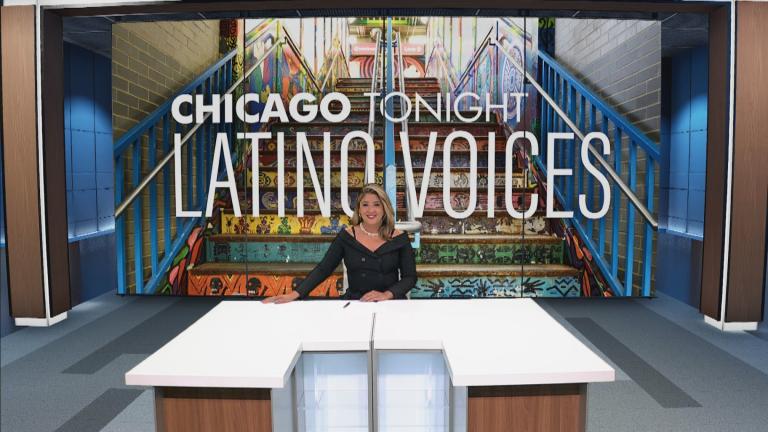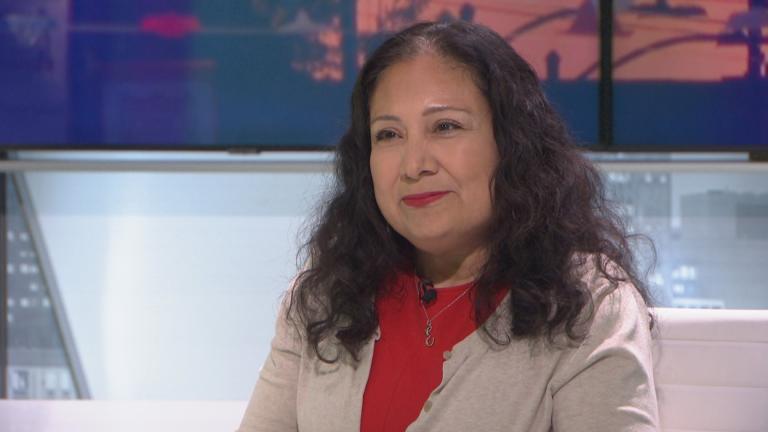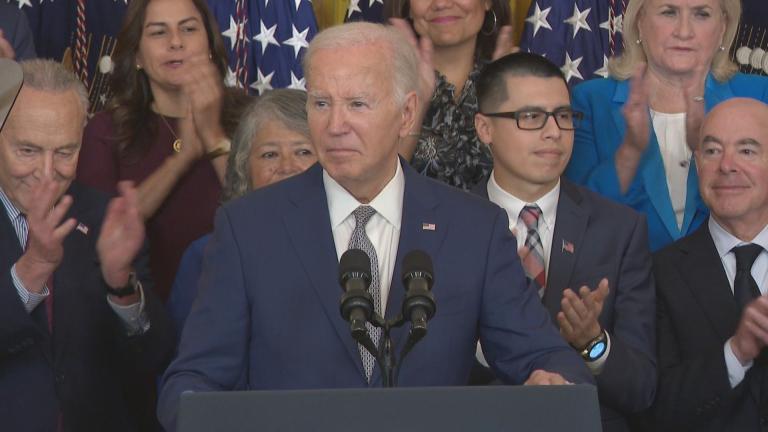Mayor Lori Lightfoot is calling on the Chicago Police Department to create and implement a formal foot pursuit policy before summer. This comes after police fatally shot 13-year-old Adam Toledo in Little Village on March 29.
As of Friday, body camera footage has yet to be released, and circumstances surrounding the shooting and foot chase are still unknown.
The department has no formal foot pursuit policy, instead they have issued a training bulletin that was updated in February 2020.
Cara Hendrickson, head of the public interest legal center BPI said a formal policy would create more accountability.
Between March 1, 2020, and Dec. 31, 2020, there were 1,301 foot pursuits, according to the latest report from the Independent Monitor, which oversees the consent decree. Twenty-nine percent of those foot pursuits resulted in use of force, and about 7.7% resulted in deadly force.
Related: Report: Progress Made, But Chicago Police Have More Work to Do on Consent Decree Compliance
Hendrickson said the process of creating a formal foot pursuit policy should include community input.
“It’s really important in this area and all areas that there be significant community engagement in deciding what should go in a policy,” Hendrickson told Chicago Tonight Tuesday. “You don’t just need people up here like me telling you what should be in a policy, the community knows what it needs to be safe and the community needs to be engaged in policymaking.”
Jacqueline Herrera, the director of violence prevention at Enlace Chicago, said a foot pursuit policy is long overdue. Enlace is a nonprofit community organization in Little Village that has been working with other community partners to support Toledo’s family.
“We tend to act when a tragedy happens, and this is a perfect example of this,” Herrera said. “I think with any policy that’s going to be implemented and impact the community as a whole, there needs to be community engagement and involvement.”
Herrera agrees that the foot pursuit policy should be informed by the community.
“One of the biggest things is understanding the communities you are working with,” Herrera said. “When you do that, when you invest in the community and understand the trauma that our community has had in the past and also the relationships that they have with the police department you broaden the way that you handle some of these situations.”
Baltazar Enriquez, president of the Little Village Community Council said de-escalation will be important in a foot pursuit policy.
“There should be different ways to de-escalate a situation,” Enriquez said. “There’s rubber bullets. There’s different types of ways... he could have tackled a 90-pound boy.”
Some of the community in Little Village feel policy changes aren’t an adequate response.
“At no point in time have any community organizations here said in relation to the Toledo assassination that we need new policies, or that we want a foot pursuit policy,” said Bárbara Suarez Galeano, a volunteer at Organized Communities Against Deportations. “I think the message has been loud and clear from organizations like OCAD, is that what we want is to defund the Chicago Police Department and to see those funds invested back in our communities to prevent tragedies.”
Suarez Galeano doesn’t believe a new policy would be effective in bringing changes, citing the trial of former Minneapolis police officer Derek Chauvin. During witness testimony, officers have testified that Chauvin violated policies and went against training, Suarez Galeano said.
However, John Catanzara, president of the Chicago Fraternal Order of Police told “Chicago Tonight” that complex guidelines would not be effective in the field when officers are making split second decisions.
“You pull up on a subject, by the time you rifle through in your head all the dos and don’ts of that new policy that’s going to come out, the offender would be long gone. It’s a joke, it makes no sense,” Catanzara said.
“I would hope the policy starts with a very clear message: Comply with police lawful orders to stop, to drop a weapon, to stop running, give up, surrender, whatever the case may be,” he said.
Herrara said change needs to go beyond the foot pursuit policy -- including prevention work and investment in mental health resources.
“Obviously training around de-escalation is going to be critical, but also being trauma-informed and how that can impact a situation,” Herrera said. “What we want is equality in policing. What policing looks like in a low-income Brown or Black community, it looks very different from a middle class, upper class, suburban community. So making sure that our services are being equalized and that we are receiving similar services as other communities.
De-escalation is one facet of police reform. Enriquez would like to see others.
“We want to implement changes in the district,” Enriquez said. “How about we have a chaplain in every police department or a social worker, so those officers before they hit the streets, they talk to them and get the stress out, get the anger out and not be angry in our neighborhood.”
Enriquez credits new council member Kristian Armendariz for the idea.
The Little Village Community Council wants to meet with Mayor Lightfoot about policy changes, Enriquez said. They also want to meet with the police department about the shooting of Adam Toledo.
“We want to have a dialogue with them,” he said. “We want to sit down with them. We want them to mourn with us. We want them to cry with us. We want them to go through this experience with us.”








